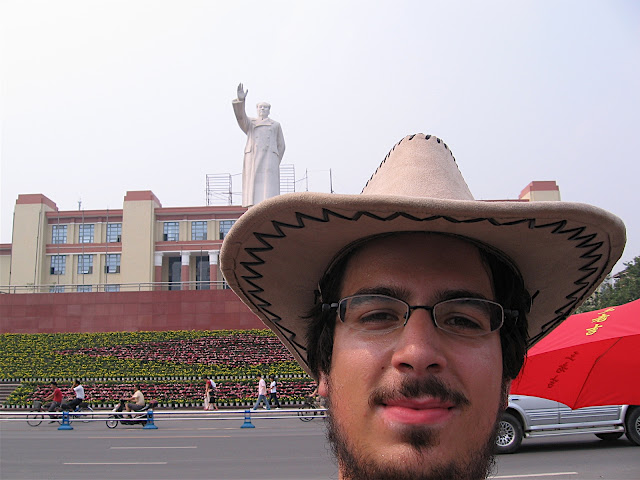"People who put on a mask of friendship, but with the objective of betrayal, and who enter from the angle of negotiations without preconditions, are more dangerous," Hossein Taeb, deputy commander of Iran's Revolutionary Guard Corps, said Wednesday, according to the semiofficial Mehr News Agency. -Thomas Erdbrink, Washington PostAfter having congratulated Barack Obama last week, it seems the Iranian leadership isn't that happy to have to deal with President-elect Obama. The hardliners have been able to use the threats by the Bush administration to rouse nationalist tendencies and support for their policies. The more aggressive the US acted, the more it increased hardliners support among the population despite a very poor management of domestic policies. So the fear is that by being more conciliatory, an Obama administration would shift domestic politics; without a common enemy to blame, the hardliners would have to explain their disastrous policies at home.
For Obama, the best policy in regard to Iran would be to take into account Iranian domestic politics and judge every of his actions based on how this could weaken hardliners internally. The caveat here is that Obama also has to judge how his actions will be seen domestically and in the rest of the world so that will restrain his actions. Then negotiate with the regime; the end goal being an end to domestic uranium production. Without nuclear weapons, the argument that Iran is an "existential threat" disappears; what remains is a moderately strong regional players with a weak economy and plenty of enemies. What Iran would get in return would be an end to its pariah status, as well as a much stronger position regionally compared to a decade ago, thanks to Bush's invasion of Iraq.
Update: I just want to something I did not make explicitly obvious. I don't think Obama should rush into a deal with Iran. They will not have an atomic bomb tomorrow; and the last thing one want is to rush into negotiations unprepared like Kennedy did at Vienna in 1961. The smart move would be to open negotiations at low level; then work slowly while attempting to increase US leverage and weaken Iran's position, for example by negotiating with Syria thus isolating Iran further.
Hat tip: Political Animal




No comments:
Post a Comment